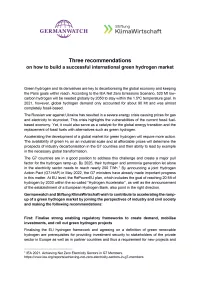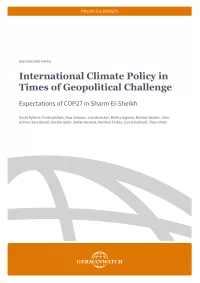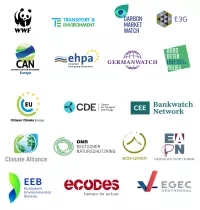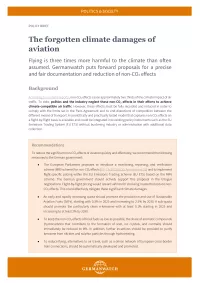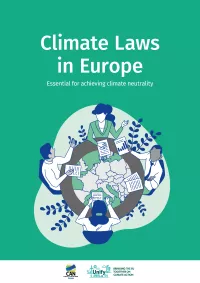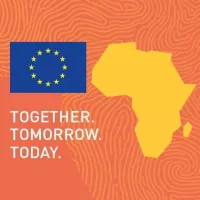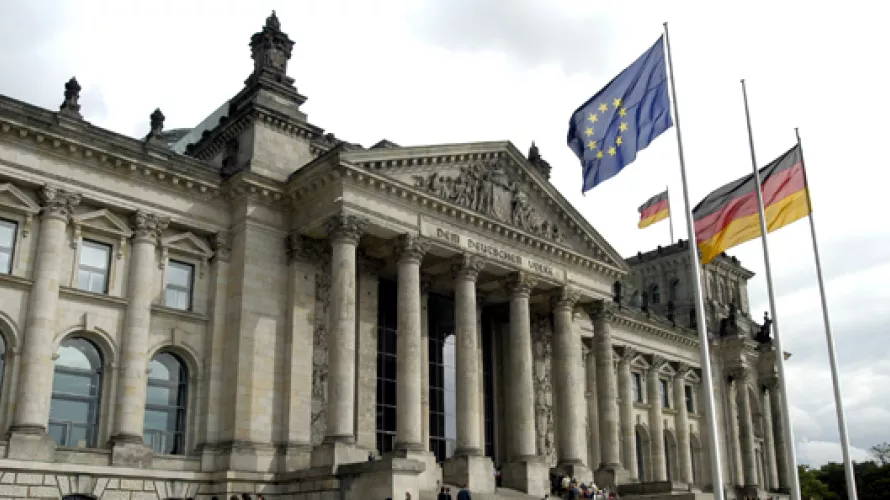
Aktuelles zum Thema
The availability of green hydrogen on an industrial scale and at affordable prices will determine the prospects of industry decarbonisation. What are necessary steps for the EU and other G7 nations to speed up a successful green hydrogen market? Germanwatch and StiftungKlimawirtschaft organised a discussion between stakeholders of civil society, industry, politics, and think tanks on this topic. In our policy brief, we summarise our three main recommendations.
This background paper provides an overview of the most important negotiation topics of COP27, which will take place in Sharm El-Sheikh, Egypt, from 6 to 18 November. There is no doubt that the impact of Russia's war against Ukraine will be the dominant topic of this year's global climate conference. At the same time, participants should be aware that the impacts of climate change have no regard for the geopolitical situation.
Flying is three times more harmful to the climate than often assumed. Germanwatch puts forward proposals for a precise and fair documentation and reduction of non-CO2 effects.
In their joint open letter, Germanwatch, Bread for the World, Friends of the Earth Germany, Misereor, DNR, WWF, the Climate Alliance, the Heinrich Böll Foundation and Environmental Action Germany appeal to the German government and call for stronger commitment to creating an international hydrogen market that is compatible with sustainable development and supports the just energy transition in partner countries.
In its coalition agreement, the German government has set itself the goal of expanding offshore wind energy to 70 GW by 2045. This target is polarising. On the one hand, offshore wind energy has a high number of full load hours and can thus make a reliable contribution to decarbonisation. On the other hand, the expansion of 70 GW of offshore wind energy is very likely to increase the need for grid expansion, raise issues of marine protection and bring challenges such as the timely availability of resources.
Together with African and European Civil Society Organisations and Local Authorities, we bring you two forums focused on moving the Africa-EU partnership forward through “Participatory and transparent governance: A people-centred approach”. The programme includes joint opening and closing sessions, which will concentrate on the roles of CSOs and LAs in the partnership; as well as two dedicated forums discussing the themes and topics pertinent to each stakeholder group.

